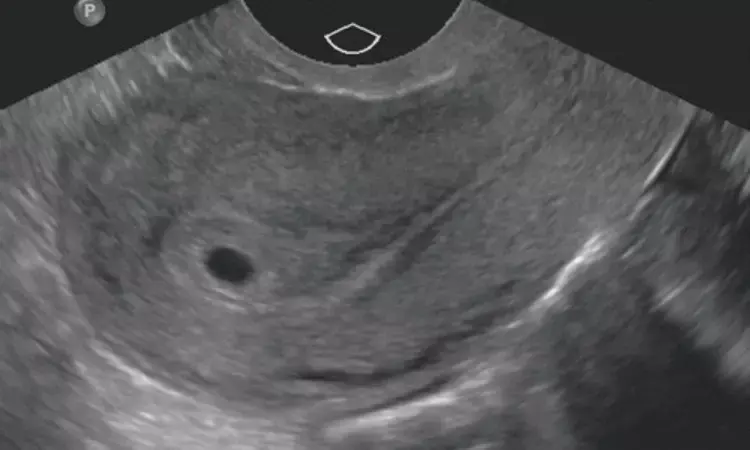- Home
- Medical news & Guidelines
- Anesthesiology
- Cardiology and CTVS
- Critical Care
- Dentistry
- Dermatology
- Diabetes and Endocrinology
- ENT
- Gastroenterology
- Medicine
- Nephrology
- Neurology
- Obstretics-Gynaecology
- Oncology
- Ophthalmology
- Orthopaedics
- Pediatrics-Neonatology
- Psychiatry
- Pulmonology
- Radiology
- Surgery
- Urology
- Laboratory Medicine
- Diet
- Nursing
- Paramedical
- Physiotherapy
- Health news
- Fact Check
- Bone Health Fact Check
- Brain Health Fact Check
- Cancer Related Fact Check
- Child Care Fact Check
- Dental and oral health fact check
- Diabetes and metabolic health fact check
- Diet and Nutrition Fact Check
- Eye and ENT Care Fact Check
- Fitness fact check
- Gut health fact check
- Heart health fact check
- Kidney health fact check
- Medical education fact check
- Men's health fact check
- Respiratory fact check
- Skin and hair care fact check
- Vaccine and Immunization fact check
- Women's health fact check
- AYUSH
- State News
- Andaman and Nicobar Islands
- Andhra Pradesh
- Arunachal Pradesh
- Assam
- Bihar
- Chandigarh
- Chattisgarh
- Dadra and Nagar Haveli
- Daman and Diu
- Delhi
- Goa
- Gujarat
- Haryana
- Himachal Pradesh
- Jammu & Kashmir
- Jharkhand
- Karnataka
- Kerala
- Ladakh
- Lakshadweep
- Madhya Pradesh
- Maharashtra
- Manipur
- Meghalaya
- Mizoram
- Nagaland
- Odisha
- Puducherry
- Punjab
- Rajasthan
- Sikkim
- Tamil Nadu
- Telangana
- Tripura
- Uttar Pradesh
- Uttrakhand
- West Bengal
- Medical Education
- Industry
Society of Radiologists in Ultrasound Updates First-Trimester Ultrasound Terms: Outdated Language Phased Out for Better Clarity

USA: As ultrasound technology has greatly improved obstetric care, particularly through the development of transvaginal ultrasound in the latter half of the 20th century, there is a growing need for precise and updated medical terminology. The Society of Radiologists in Ultrasound has emphasized the importance of evolving the language used in first-trimester ultrasounds to ensure clear and effective communication. The terminology must adapt to reflect the latest advancements and facilitate optimal interpretation of ultrasound images.
In response to this need, the Society has developed a new lexicon that includes recommended terms and phrases to use, as well as those to avoid. Terms that have become outdated or confusing, such as "fetal pole," "pseudosac," and "angular pregnancy," are being phased out. The term "pregnancy failure," which may be distressing for patients, is replaced by "early pregnancy loss" (EPL) along with modifiers such as "concerning for," "diagnostic of," "in progress," "incomplete," and "completed."
The term "cardiac activity" is recommended over "heart motion" or "heartbeat" for describing fetal cardiac function in the first trimester. Additionally, terms like "live," "living," and "viable" are advised against to avoid ambiguity and ensure clarity.
The Society of Radiologists in Ultrasound’s First-Trimester US Lexicon advocates for using clear, scientific, and precise terminology to ensure effective communication across disciplines, reduce bias and harm, and honor patient preferences. The consensus recommendations were jointly published in Radiology and the American Journal of Obstetrics and Gynecology.
The authors aimed to establish clear, logical, and respectful terminology for diagnosing and managing first-trimester pregnancies, with panelists achieving either unanimous or 80% agreement on the preferred terms. They recommended abandoning outdated terms such as "fetal pole," "pseudosac," and "angular pregnancy," and advised against using "viable," "live," or "living." These terms, they noted, could be misused outside the medical field for political or legislative purposes.
The definition of ectopic pregnancy was expanded to include any pregnancy implanted in an abnormal location, with the specific location (e.g., tubal, interstitial, cervical) preceding "ectopic pregnancy" in reports. This expanded definition now includes both extrauterine and intrauterine sites, such as cesarean scar implantations, to highlight the significant risk of maternal morbidity and mortality associated with ectopic pregnancies.
Dr. Shuchi Rodgers from Sidney Kimmel Medical School at Thomas Jefferson University and chair of the panel emphasized in a press release that many commonly used terms are outdated, confusing, or inconsistently applied. The panel's goal was to develop terminology that is clear, specific, scientifically grounded, and medically appropriate, aiming to reduce potential bias and harm.
The key results were as follows:
- Early pregnancy loss" is now preferred over "pregnancy failure" and should be used with modifiers such as concerning for, diagnostic of, in progress, incomplete, and completed.
- Cardiac activity" should be used instead of "heart motion" during the first trimester, and terms like "live," "living," and "viable" should be avoided.
- The term "ectopic pregnancy" refers to any pregnancy implanted in an abnormal location, encompassing both extrauterine and intrauterine sites, such as the cervix or a cesarean scar.
In their conclusion, the authors highlighted the need for evolving terminology to match advancements in transvaginal ultrasound technology, ensuring that language for interpretation and communication remains consistent and well-defined.
Reference:
Rodgers SK, et al "A lexicon for first-trimester US: Society of Radiologists in Ultrasound consensus conference recommendations" Radiology 2024; DOI: 10.1148/radiol.240122.
Dr Kamal Kant Kohli-MBBS, DTCD- a chest specialist with more than 30 years of practice and a flair for writing clinical articles, Dr Kamal Kant Kohli joined Medical Dialogues as a Chief Editor of Medical News. Besides writing articles, as an editor, he proofreads and verifies all the medical content published on Medical Dialogues including those coming from journals, studies,medical conferences,guidelines etc. Email: drkohli@medicaldialogues.in. Contact no. 011-43720751


